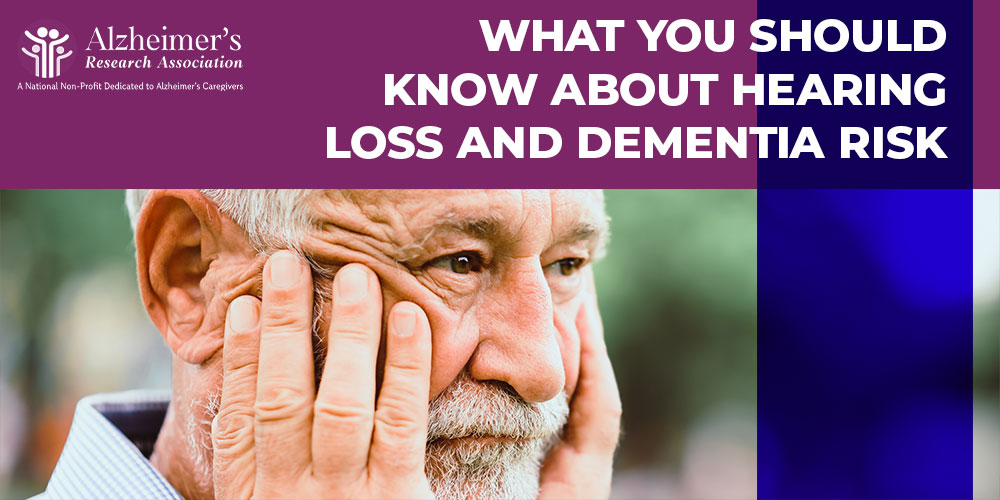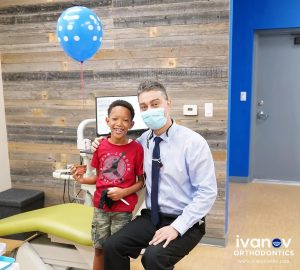What You Should Know About Hearing Loss and Dementia Risk
3 min read
Individuals who experience hearing issues between the ages of 40 and 65 have a higher chance of getting dementia. Additionally, it might be one of the early signs of dementia.
Many people begin to lose their hearing as they age, though they may not realize it at first. It is critical to have a hearing exam to lower your risk of dementia. According to research, using hearing aids lowers a person’s risk of dementia to that of a person with normal hearing [1].
Remember that having trouble hearing does not guarantee someone will acquire dementia; it is merely a risk factor.
Age-related hearing loss and dementia
Age-related hearing loss is a prevalent problem among older people. It frequently begins with difficulty hearing what others say, particularly in noisy surroundings. Early detection and treatment become more difficult as a result.
There are the following two types of hearing loss.
- Peripheral hearing loss refers to the ears’ diminished ability to detect sounds. This increases a person’s chances of acquiring dementia.
- Central hearing loss refers to sound processing issues in the brain that cannot be repaired with hearing aids. Given that Alzheimer’s affects the brain’s auditory processing regions, this could be a very early sign of the disease.
Protect your hearing to lower your risk of dementia.
Consult your general practitioner about being sent to an audiologist or make an appointment for a hearing test. This will reveal any problems with hearing and provide remedies, including wearing a hearing aid.
According to studies, those who wear hearing aids are less likely to develop dementia. Hearing aid use was also linked to fewer memory and cognitive issues independent of dementia. Long-term monitoring of hearing aid use revealed that it may lower memory decline [2].
Early intervention is often the key to managing hearing loss. It entails protecting your hearing from an early age. For instance, you can use ear protection when needed and refrain from listening to loud noises for extended periods.
The link between dementia and hearing loss
A person’s chance of having dementia in later life rises if their hearing deteriorates in mid-life.
Individuals with hearing impairments might eventually isolate themselves more and withdraw from social interactions. Depression and social isolation are dementia risk factors.
Hearing loss may also indicate that the parts of the brain that help us comprehend sounds and speech must work harder to determine what sounds are. This extra work could cause changes in the brain that impact our ability to think and remember things.
The connection between hearing loss and dementia is not entirely understood. However, it does not guarantee that someone with hearing loss will acquire dementia; it just increases the dementia risk.
Hearing loss could be a risk factor for dementia, an early symptom, or both, but determining this on an individual basis can be highly difficult.
Studies on hearing loss and dementia
Numerous studies have examined the connection between dementia or problems with memory and thinking and peripheral hearing loss.
A comprehensive analysis examined all the factors associated with an elevated risk of dementia [3]. When evaluating a risk factor, scientists compare the proportion of dementia patients with that risk factor to those without it. In this instance, a thorough analysis of numerous studies revealed that hearing loss is one of the twelve primary risk factors for dementia.
Compared to individuals without hearing loss, over twice as many people with mild hearing loss (at the World Health Organization threshold for diagnosis of hearing loss) would experience dementia. With moderate hearing loss, the risk increased threefold, and with severe hearing loss, it increased nearly fivefold [4].
Even mild hearing loss has been linked to an increased risk of dementia as well as a decline in memory and cognitive abilities. Research has also demonstrated that hearing loss is associated with faster atrophy of the brain regions in charge of processing memories and sounds [5].
Alzheimer’s Research Association is a non-profit organization dedicated to helping caregivers of Alzheimer’s disease and dementia. We provide the latest information and news about the illness and helpful tips to help caregivers cope with their daily caregiving challenges. We realize the most important thing that a caregiver needs is financial assistance. Therefore, we provide grants to caregivers to ease their financial burden. Caregivers can apply for grants here: Alzheimer’s Grant Application.
You can also help caregivers in their endeavor by donating as much as possible: Donation To Alzheimer’s Research Associations.




